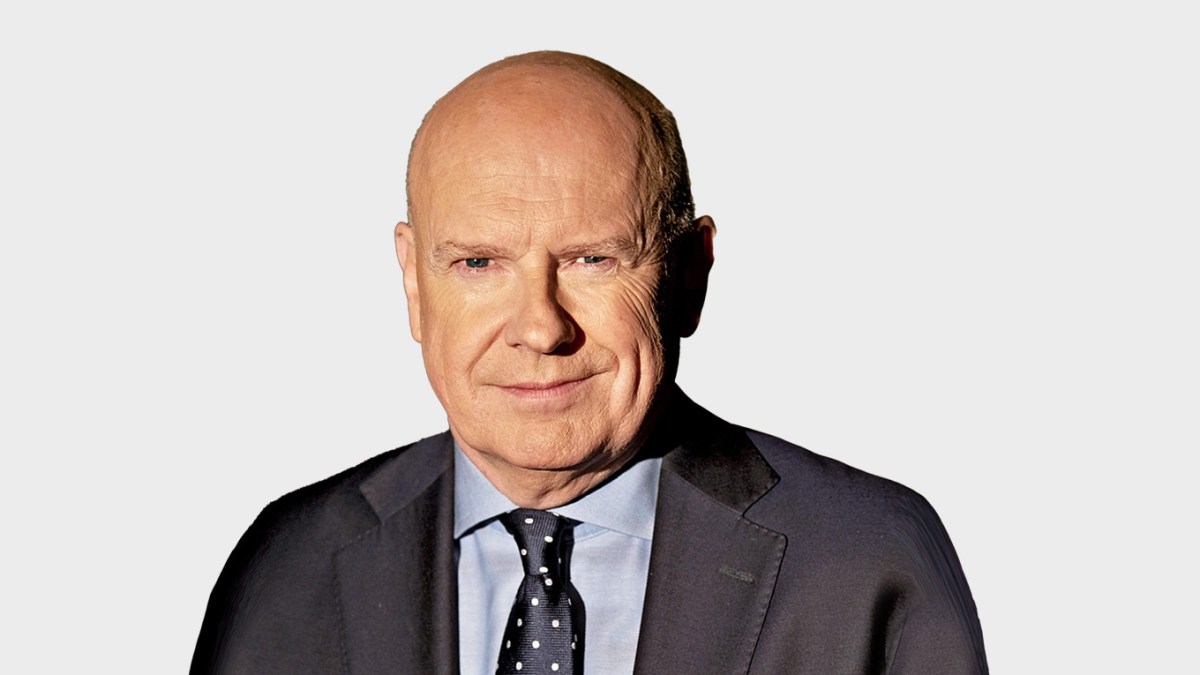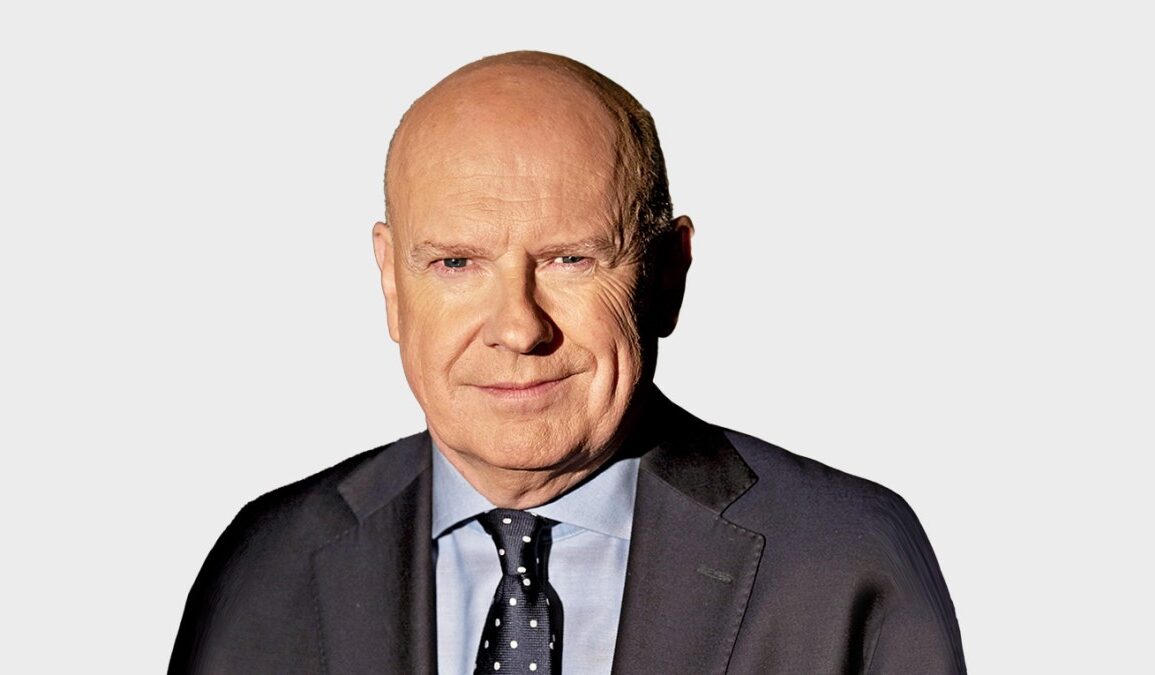
One of the more enduring television comedy sketches of the last 20 years is from That Mitchell and Webb Look, in which the comics play two German soldiers on the eastern front in the Second World War. As they hunker down before the Russian onslaught, David Mitchell, playing a German officer suddenly troubled by his conscience, notes the skull insignia on their caps and wonders to his comrade: “Are we the baddies?”
His pal dismisses the concern, but the thought continues to nag at Mitchell. Thinking about the symbols worn by the enemy Allies, and contrasting them with the Nazis’ proud embrace of the death’s head imagery, he muses whether he is on the wrong side of the moral divide. “Their symbols are all quite nice! Stars, stripes, lions, sickles … Ours is a skull!”
I thought about the sketch this week as Donald Trump was detonating yet more rhetorical bombs over Ukraine. As he escalated his language against Volodymyr Zelensky and recited Vladimir Putin’s formulas, it posed an awkward question for Americans: are we now the baddies?
His claims that Ukraine started the war and that Zelensky was a dictator represented shocking new territory even for this notoriously iconoclastic politician. Attributing primary responsibility for the war to the small nation that had been invaded by a larger neighbour went way beyond the legitimate, if contentious, arguments some on the American right have made in the past few years: that Nato may have contributed to the conditions for war by pushing the West’s boundaries too far and provoking the Russian bear; that whatever the merits of the Ukrainians’ case, America, thousands of miles away with its own multiplying burdens, had no business dragging itself into a conflict in which its own interests were uncertain.
Instead, we have the most radical about-face in US policy in more than 50 years — a full-throated endorsement of the case for the Russian dictator who launched an all-out war, bombing cities, murdering civilians and shipping children off to Russia.
Advertisement
Some think Trump could be playing verbal diplomatic games, still perhaps trying to achieve a quick route to peace by telling Ukraine to abandon any last hope of support and forcing it to acknowledge harsh realities. But the conviction with which Trump always speaks on the topic suggests the simple alternative is much more likely: he prefers Putin’s Russia over Ukraine and America’s own democratic “allies”.
If, as I argued last week, Trump is intent on reorienting US strategy away from defending the global liberal order and towards a “great power” world in which order is established by sheer force, a key question is how will he sell it to an American public long used to the idea that their values are even mightier than their swords.
A moral basis for US foreign policy has been hotly debated for decades. It was rejected by the godfather of Cold War policy, George Kennan, who lamented the “legalistic-moralistic tendency” in American diplomacy and urged a ruthless, cold-eyed approach to the pursuit of its interests. But even cold-eyed realism tended to have a moral component so it could be justified to the public: since the US cause of freedom and democracy was paramount, it could demand ruthless measures to secure it.
As Joseph Nye, a leading historian of US foreign policy argued a few years ago: “Sceptics say interests bake the cake; morals are just icing that presidents dribble on to make policy look pretty … Looking back over the past seven decades of American foreign policy, history shows that the cynics are wrong. Morals did matter in the decisions that created the American era after 1945.”
All nations of course like to see themselves as the good guys. But for America, an ethical basis to its relations with the rest of the world has always mattered more. In part that is because the US became a great power in the era of democracy. To engage in international conflict it was necessary for American leaders to make the case to their own people, as well as to international opinion and institutions, that its cause was right.
Advertisement
It is also the case that while the US has fought dozens of wars in the past 120 years, uniquely among nations none has been fought for its own survival. All, to a greater or lesser degree, were wars of choice. To make the case for the forward projection of US power, the sacrifice of blood and treasure in far-off lands, requires an argument rooted in an ethical approach.
The rest of the world may roll its eyes at that idea and recall many of the engagements the US has pursued in the past 50 years alone that were at best morally dubious: Vietnam, Iraq, brutal dictatorships propped up by US support. But at least for their domestic audience American leaders have been required to make the moral case that the ends justified the means. The extirpation of an evil has long served as justification in the language of successive presidents.
Trump’s strategic worldview relies on naked self-interest. It has, at least, in an improbable way, a simple honesty about it, stripped of the niceties of goodness and fairness. But Americans still want to know they’re on the right side. And on Russia, Trump’s amoralism is way out of line with the public’s view. Americans mostly sympathise with Zelensky and loathe Putin. A poll last year by the Pew Research group found 8 per cent of Americans had confidence in the Russian president to do the right thing; 88 per cent had little or no confidence.
Perhaps Trump calculates that in an age of hyperpartisan media, this won’t matter. They’ll side with him anyway. But, disdainful as he may be of weak nations and leaders, admiring as he may be of ruthless strongmen, he will still have to find a way to convince Americans that they have not now signed up with the global bad guys.
This post was originally published on this site be sure to check out more of their content.






